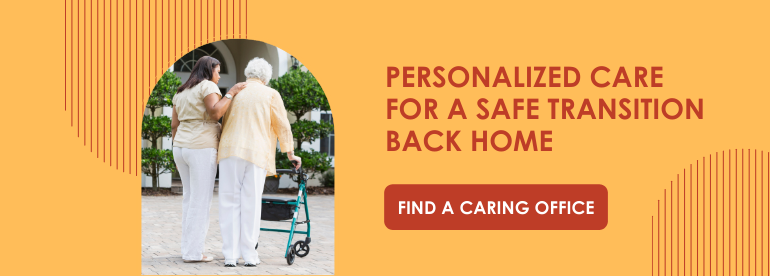There are over 300,000 hip replacement surgeries performed each year in the United States. The goal for those who have this procedure is to improve their quality of life by decreasing their pain and increasing their level of mobility. After the surgery, most patients experience pain, discomfort, and are only allowed limited movement. A successful recovery requires a lot of patience as well as adherence to physician-directed exercise and medication plans. Here are tips to help you or a loved one recovery after a hip replacement.
Attend Physical Therapy
After a hip replacement procedure, you will need to attend physical therapy to regain strength and mobility. Physical therapy will help you gradually restore your independence as you perform prescribed exercises.
Seniors may perform physical therapy in an out-patient rehabilitation center, in-patient rehabilitation center, or at home. Your doctor may recommend a specific type of rehab to help you recover safely.
Maintain Personal Care
After surgery, you will be responsible for keeping your incision clean and dry until you are healed. While your doctor will give you specific instructions, you should look for signs of infection, including drainage, redness, pain, fever, or chills.
In addition to taking care of your incision, you will discover that maintaining your personal care is harder than it once was. It may be difficult to shower or get dressed. While performing these necessary daily activities, remember to not strain yourself or bend too much.
Get Moving
Your doctor will indicate what your activity levels should be during your recovery, but it is important that you get moving. Stand up, take a walk, and avoid sitting in the same position for more than about half an hour. If you are instructed to use a walker or crutches, use them until the doctor clears you to walk without them. While the movement is important for a speedy recovery, trying to do more than you are able can be detrimental to your recovery.
Consider a Caregiver
During the recovery process, a caregiver is a great option to assist you or a loved one. Here are a few things a caregiver can help with.
-
Transportation from the hospital after the procedure
-
Assistance moving to different rooms as well as standing, sitting, and lying down
-
Household chores, cooking, and grocery shopping
-
Ensuring the patient is able to attend follow-up appointments with the surgeon as well as physical therapy appointments
-
Picking up prescriptions and providing medication reminders
-
Communicating any concerns to the healthcare team
A compassionate and patient caregiver plays an integral role in the recovery process. In addition to providing comfort and emotional support, a caregiver is an observant set of eyes ready and willing to provide an optimal recovery experience. The patient's focus should be geared toward enjoying greater mobility after recovering. A caregiver can help to relieve the stress around transportation and maintaining their home.
Remove Fall Hazards
Falling is a major concern for many seniors but especially those who have recently undergone surgery and who have limited mobility. A fall can be even more dangerous for you now more than ever. Identify hazards around the home and take every precaution when moving from room to room.
Caring Senior Service offers a free Home Safety Assessment to help you identify and address home hazards. Reach out to your local office to schedule an assessment.
Attend Follow-Up Visits
You will have several appointments after your surgery to make sure your hip and leg are recovering properly. You may get x-rays or discuss your mobility. These visits are extremely important to make sure you are making adequate progress and recovering on schedule.
To learn more about home care after a hip replacement, reach out to the Caring Senior Service team near you.


